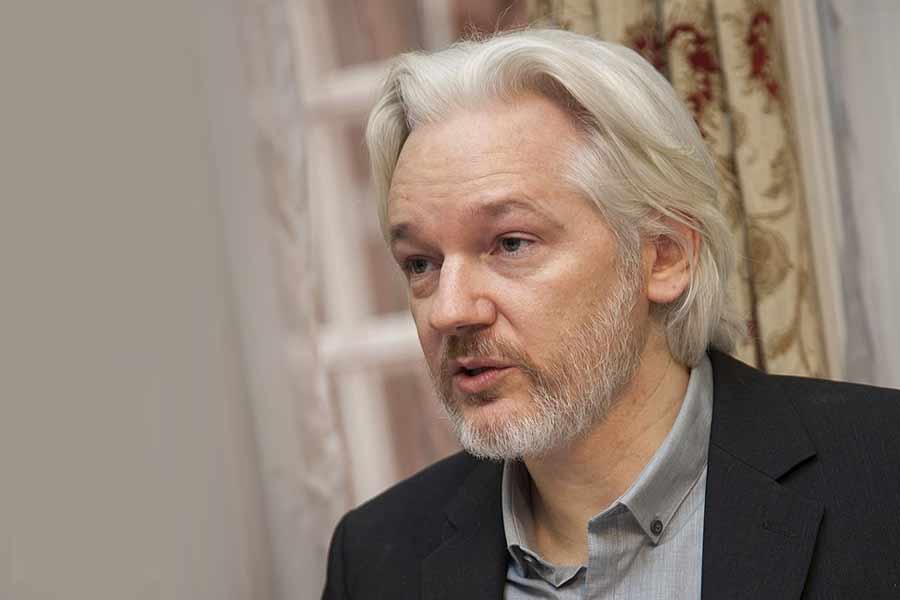The name Julian Assange, the founder of WikiLeaks, conjures up images of fearless revelations of government wrongdoings of monumental proportions and years of persecution thereafter. He represents the cause of journalism, especially in the digital age, and is looked upon as a hero in various circles of journalists and free thinkers. The US government is hell bent on putting him behind bars virtually for his entire life on charges of espionage to silence him forever and stop him from ferreting out sinister classified information. With that end in view, the US government is trying to get him extradited from the UK. The final trial process is to begin in a few days in London.
In 2010, WikiLeaks published US government documents exposing its diplomatic and military policies vis-a-vis the Afghan and Iran wars. Four years ago, the US justice department under the Donald Trump administration indicted WikiLeaks and Assange on 18 counts. He was charged with multiple breaches of the 1917 Espionage Act. The Act had come into force during World War I. However, it has been invoked in recent times against whistleblowers and leakers of sensitive and damning official documents. Prominent among the targets included the Pentagon Papers whistleblower Daneil Ellsberg who made documents available to the New York Times that exposed US government misinformation about the Vietnam War. The charges could not be substantiated and Ellsberg was exonerated, but it was a close shave for him.
The worst aspect of the Espionage Act is that it contains no public interest defence. It means a person charged under it cannot present evidence about the content of the material leaked nor can he present why he did so. The plea that the exposé is done in public interest or the public has a right to know about the issues is untenable. Such restrictions cannot be allowed in the case of Assange. He exposed documents to the public not about an ongoing war but government doings of the past. Even journalists sometimes depend on whistleblowers for unearthing vital information about government irregularities and wrongdoing. No doubt such a relationship is delicate particularly in cases where national security is concerned.
It is heartening that India’s Supreme Court, in a different case, ruled that the government cannot use the national security plea to stonewall disclosure of government documents to preserve the people’s right to know.
Similarly when the US government is involved in cases, national security cannot invariably override public interest in publication of documents and the right to information. This is at the heart of the WikiLeaks case.
This week all eyes are on Assange’s lawyers who will seek court permission to appeal against the extradition decision made in 2022 by then home secretary Priti Patel. There are three possibilities. Assange may be extradited. The UK may relent and President Biden may intervene, providing relief. If the first possibility comes true, Assange will have to face a criminal trial in which he will not be allowed to make his arguments and a maximum penalty of 10 years in prison for each of the Espionage Act charges will be slapped on him. Conviction will make the prison his home for the rest of his life.
Australian Prime Minister Anthony Albanese has slammed the US and said his country as a whole shared the view that “enough is enough.” Assange is an Australian citizen. Speaking in parliament after backing a motion calling for an end to Assange’s prosecution so that he can return to his family in Australia, Albanese said things cannot go on and on indefinitely. In a forceful language he said his government had a duty to “lobby” for its citizens and that he had raised the issue at the highest levels in Britain and the US. Without trying to interfere in the legal process of other countries, he said it is appropriate for Australia to put its very strong view that the matter should end without any further delay and justice be given to the whistleblower.
It is time to stand with Assange not only for his sake but for the sake of transparency and protection to whistleblowers and journalists across the world. The media world needs to get united in slamming down the attempt by the United States to get Assange extradited from Britain to face charges under the US Espionage Act. The application of the provisions of this Act is as much a threat to Assange as to journalism with global implications.
A crusader for truth should not, in the interest of a healthy democratic world, spend his life in prison.
